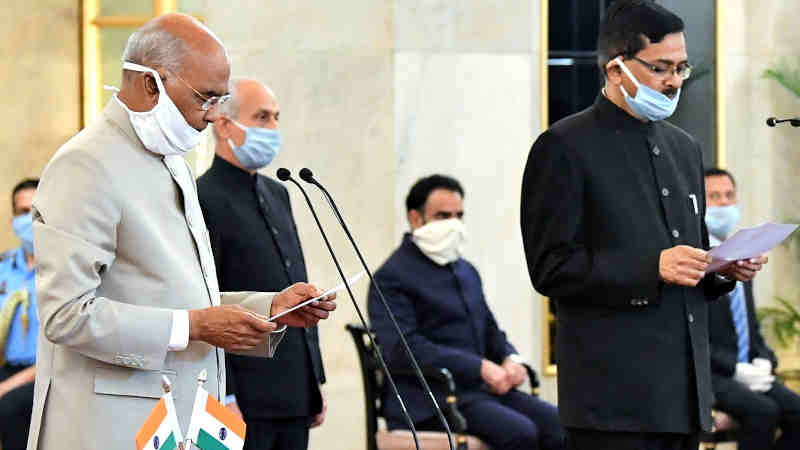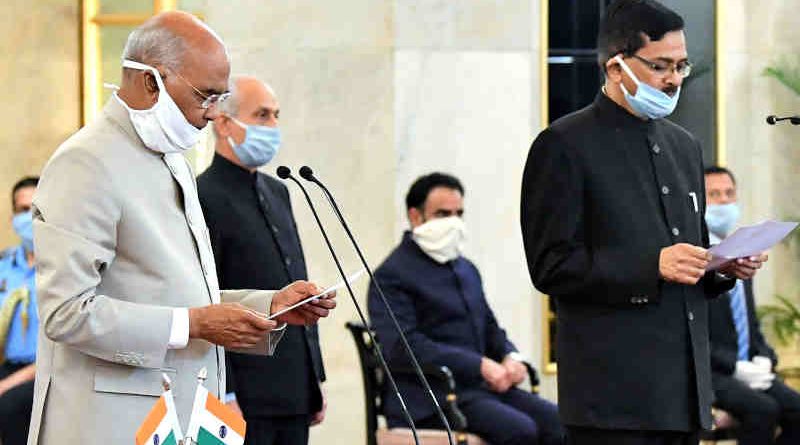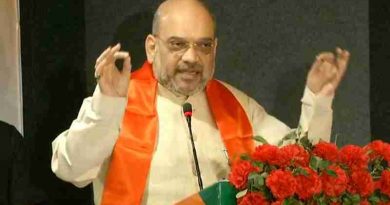Amid Coronavirus Crisis Sanjay Kothari to Head India’s Top Anti-Corruption Outfit

Although this is the responsibility of CVC Sanjay Kothari to check the embezzlement of funds allocated to deal with coronavirus crisis, it is largely believed that he will fail like his predecessors who were complicit in corruption cases.
By Rakesh Raman
As corruption in India has crossed all conceivable limits, Sanjay Kothari was sworn Saturday (April 25) as the Central Vigilance Commissioner to head India’s top anti-corruption organization Central Vigilance Commission or CVC.
He made and subscribed the oath of his office before the President of India Ram Nath Kovind at a ceremony held in the Rashtrapati Bhavan.
While CVC is a toothless outfit controlled by the government, Kothari’s appointment is a perfunctory event as he will not be able to resolve pending cases such as the Rafale corruption case and others in which the top politicians and bureaucrats are involved.
Now, during the coronavirus (COVID-19) crisis, there is a need to establish a robust anti-corruption mechanism because the Central and State governments are announcing financial relief packages for the affected people, but the money is not reaching the needy citizens.
All these relief announcements exist only in official files while the cash as well as non-cash benefits are not reaching the poor. In order to steal money worth billions of dollars, the governments have not made any transparent auditing systems to track the money.
Take, for example, the Rs 1.70 lakh crore ($22 billion) relief package under Pradhan Mantri Garib Kalyan Yojana for the poor to help them fight the battle against coronavirus. As the Indian government headed by PM Narendra Modi has not revealed the process to spend this money, there are huge chances of misappropriation of funds.
Similarly, the Prime Minister’s Citizen Assistance and Relief in Emergency Situations Fund (PM CARES Fund) was created on 28 March 2020 following the COVID-19 pandemic in India. But there is hardly any transparency in the management of this fund.
While the Modi government is not using the taxpayers’ money collected through different funds for improving the healthcare infrastructure to combat the disease, research shows India may have 1.3 million coronavirus cases by the end of May 2020.
Although this is the responsibility of CVC Sanjay Kothari to check the embezzlement of funds allocated to deal with coronavirus crisis, it is largely believed that he will fail like his predecessors who were complicit in corruption cases. And corruption will persist and increase in India.
By Rakesh Raman, who is a national award-winning journalist and social activist. He is the founder of a humanitarian organization RMN Foundation which is working in diverse areas to help the disadvantaged and distressed people in the society. He also creates and publishes a number of digital publications and research reports on different subjects.





